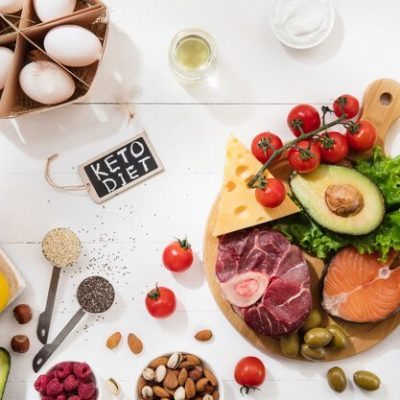Processed foods are everywhere, luring us in with their convenience and eye-catching packaging. While they simplify our lives, they can seriously impact our gut health. Your microbiome—the vast community of trillions of bacteria and other microorganisms in your digestive system—is vital for your overall well-being. Relying too much on processed foods can upset this delicate balance.
Let’s explore how processed foods influence your gut and what you can do to maintain its health. This post may contain affiliate links, which help keep this content free. Please read our disclosure for more information.
Processed foods are those that have been changed from their natural state through methods like canning, freezing, or adding preservatives. Minimally processed foods, however, have undergone only slight changes and still retain their nutrients. Examples include pre-washed spinach, frozen vegetables, and roasted nuts. These options keep their nutritional value while providing convenience, making them a great choice for a healthy diet.
In contrast, highly processed foods are often filled with sugar, unhealthy fats, artificial flavors, and preservatives. This category includes sugary cereals, soda, microwave meals, and even some items labeled as “healthy,” such as flavored yogurts, protein bars, and diet snacks. Although they may seem nutritious at first glance, many contain hidden sugars, artificial sweeteners, and unrecognizable additives. These foods are far from anything natural and can harm your gut health.
Your gut microbiome hosts trillions of microorganisms, including both beneficial and harmful bacteria. While “bacteria” often has a negative connotation, the good bacteria in your gut are crucial for digestion, immunity, and even mental health. However, this balance is delicate. Processed foods can disrupt this harmony, allowing harmful bacteria to thrive, which can lead to digestive problems, weakened immunity, and increased cravings for unhealthy foods.
Supporting your microbiome with the right nutrients is essential for keeping it healthy. While processed foods may sometimes contain fiber, they often lack essential vitamins, minerals, and healthy fats. Nutrients like B vitamins, omega-3 fatty acids, and antioxidants are vital for gut health. Without these, your microbiome lacks the diverse fuel it needs to flourish, making it susceptible to imbalances.
Processed foods are frequently loaded with added sugars and artificial ingredients, which can nourish harmful bacteria in your gut, allowing them to multiply and outcompete the beneficial ones. Preservatives and emulsifiers can further disrupt the gut lining, leading to inflammation and digestive discomfort. Refined carbohydrates, such as those found in white bread and sugary snacks, break down quickly into sugar, causing spikes in blood sugar levels and feeding harmful bacteria. This imbalance can result in bloating, inflammation, and irregular digestion.
Processed foods also reduce the diversity of your gut microbiome. A healthy gut thrives on variety, but the additives and lack of natural nutrients in processed foods fail to support this diversity. The outcome? Digestive discomfort, weakened immunity, and even mood disturbances.
In the short term, consuming too many processed foods can lead to uncomfortable symptoms like bloating, gas, and the urgent need to find a bathroom. These symptoms are not just minor annoyances; they signal that something is wrong with your gut. You may also experience irregular digestion and fatigue as your body struggles to manage the imbalance.
Over time, the damage doesn’t simply go away. Long-term effects can include an increased risk of chronic conditions like irritable bowel syndrome (IBS), which can make daily life difficult due to ongoing digestive issues. Autoimmune disorders may also develop, putting your body in a constant state of defense. Gut imbalances have even been linked to mental health issues, including increased anxiety, depression, and persistent mood swings, highlighting the connection between gut health and mental well-being.
A disrupted gut affects not just your physical health but your overall well-being. The takeaway? Those quick, convenient meals might save you a few minutes now, but they could lead to years of discomfort if they dominate your diet. Your gut’s wishlist is simple: Start small. Swap chips for an apple, sprinkle flaxseeds on your oatmeal, or add a serving of kimchi to your dinner. Even minor changes can have a significant impact, and your gut will appreciate every step you take.
Making dietary changes can feel daunting, but it doesn’t have to be. The goal isn’t perfection; it’s progress. By taking small, manageable steps, you can lessen your dependence on processed foods and make room for more nourishing options. Here’s how to begin: Processed foods may be quick and easy, but they can’t compare to the benefits of a gut-friendly diet. Every small change you make can lead to significant rewards for your gut health and overall well-being.
If you’re looking for guidance and structure to help you stay on track, the 21-Day Fat Loss Challenge is your ultimate reset plan. This program is designed to help you break unhealthy habits, focus on whole, nourishing foods, and see real results in just three weeks. You’ll receive support and resources to help you succeed.
Thousands have already transformed their lives through this program, and you can too. Don’t wait to start feeling your best—take the first step today! Learn more and join here.










